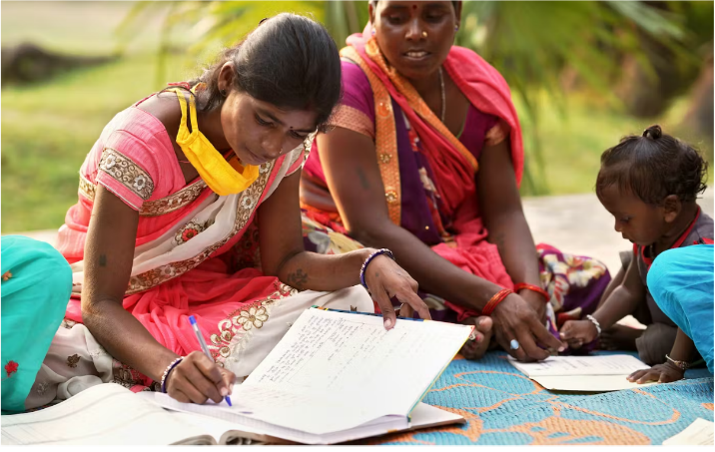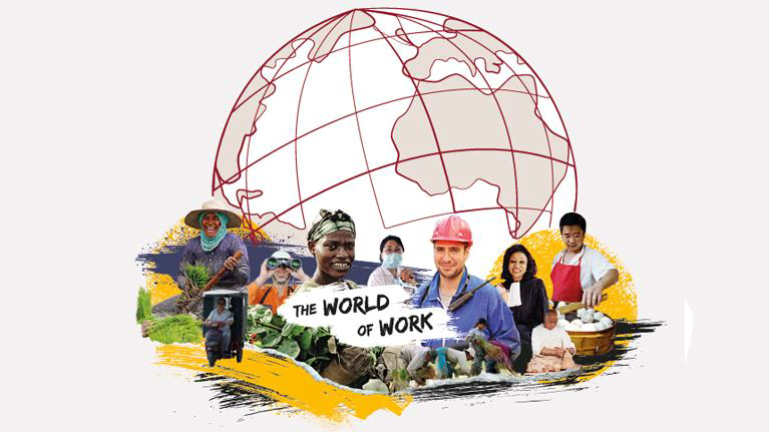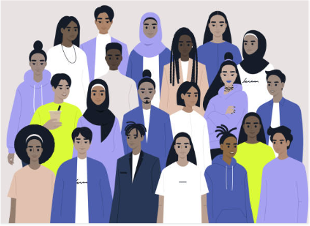The project follows three broad thematic categories – students’ cognitive, social-emotional, and behavioural skills – in accord with UNESCO’s global citizenship educational framework. Students will be joining sessions of induction into the key concepts of global citizenship, realities, and possibilities.
According to UNESCO’s educational framework for global citizenship, the project follows the three core domains of learning:
I. Consumerism and Fast Fashion

The Consumerism and Fast Fashion module addresses global issues created by consumerism and explores the connections between inequality and those issues. Case studies, reports, and proposals at both the local and international levels will be examined in an exercise to analyse how power dynamics affect one’s voice, influence, access to resources, decision-making and governance. As a student, you will be encouraged to evaluate your own consumption habits and to promote solutions for specific consumerism issues within your community.

II. Sustainable Consumption


The Sustainable Consumption module critically examines viable consumption communication through case studies on fair trade cocoa. By analysing companies’ marketing tactics of sustainable products and sustainability reports, you will explore how word choice and text organization affect meaning, and you will further evaluate the practice of sustainable consumption and the realities of its implementation. You will engage in group projects which guide you to report on greenwashing in supermarkets and online markets around you, and which encourage you to promote ethical marketing of sustainable products through awareness campaigns.
III. Climate Change and Environment

The Climate Change and Environment module examines the dire consequences of global warming, both current and future, and reflects on the myriad human activities and behaviours that lead to “long-term shifts in temperatures and weather patterns” (United Nations). Diverse environmental issues are illustrated via social media posts, infographics, pictures, and videos intended to help you to identify and explain the effects of climate change in different narratives and express the connections among local, national and global responses to the various issues. You will learn how to pace an effective speech with appropriate pauses and stress and use emphatic language structures to propose workable solutions for combatting climate change in your community.

IV. Household Waste


The module on Household Waste introduces the topic of residential trash in Hong Kong and differentiates the concepts of recycling and upcycling. You will develop skills for interpreting data from graphical representations and learn how to adopt the compare-and-contrast strategy when presenting ideas. You will learn to apply a set of language resources that will enable you to speak and write effectively to address domestic waste issues and promote innovative ways to solve the problems associated with household disposal.
V. Marginalization in Education Access

The module on Marginalization in Education Access is designed to provide you with a comprehensive understanding of the issues related to racial and gender discrimination, economic deprivation, and social exclusion when people are denied access to education. By exploring the challenges faced by language minority students in Hong Kong, and probing gender-based marginalization in India and Pakistan, you will gain a deeper understanding of the structural inequalities that perpetuate marginalization. In addition, you will develop language skills that are particularly relevant to advocacy and persuasion, both of which are critical for promoting inclusive and equitable educational access and for widening people’s life chances.

VI. Intercultural Communication


The Intercultural Communication module focuses on how identity shapes the way we interact with others through both verbal and non-verbal communication. You will learn in detail how various levels of identity are formed and acquired, and how they affect the ways in which we perceive others and share information with them. You will engage in case studies that will allow you to understand the threats that are inherent to intercultural communication, and you will examine some of the solutions for better intercultural interactions and will practise how to promote them.
VII. Media and Technology

The advent of digital technologies has transformed the world and fundamentally changed the way we live and work. It is important for us to understand how we interact with digital media and what risks those the interactions might entail. Remarkably, whereas many online safety issues frustrate individual Internet users and our society as a whole, millions of people in many parts of the world still struggle to get access to digital devices and the Internet.
This module focuses on the characteristics, uses, and impacts of digital media and technology on people’s lives, on nations, and on the planet.

VIII. Global Labour and Employment


The module on Global Labour and Employment introduces global labour system and explores the interconnectedness and interdependency of different countries and populations in the areas of trade and labour. You will engage in business case studies of multinational companies and explore their effects on the labour regimes on other continents – especially in Asia, Africa, and Latin America. You will also look into the situation of migrant workers in Hong Kong, and you will prepare and deliver a presentation on the process that those workers must follow in order to gain work visas, the institutions involved in and the power relations inherent within the process of acquiring work, and the common challenges that migrant workers typically face.
IX. World Englishes and Accented English


X. Gender Stereotypes


XI. Ethnic Minorities and Multiculturalism


XII. Food and Equity


